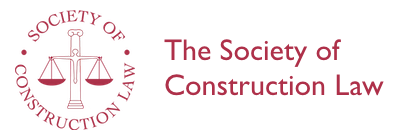Implied Terms in Construction Contracts
John ME Lyden
March 2013
A paper presented to a joint meeting of the Society of Construction Law and the Society of Chartered Surveyors in Ireland in Cork on 4th February 2013
If terms which are not expressed in contractual documents are nonetheless part of the contract because they are implied, when does this happen, for what reasons and with what effect? John Lyden draws on a wide range of textbook and case law authorities from many common law jurisdictions, though with a central focus on the law in Ireland, to explain the general principles which can lead to terms being implied into contracts. He also looks specifically at the application of those principles to construction, with copious examples from reported cases, in order to explore the different categories of regularly implied terms which affect contractor and employer respectively.
Introduction - Implied terms generally - Terms implied under the Constitution of Ireland - Terms implied under statute - Terms implied by the custom or usage of a particular trade (General principles - Construction examples: no custom accepted - Construction examples: custom accepted) - Terms implied by a course of dealing between the parties - Implied terms under the common law (Implied in law or in fact - Terms implied by law - Terms implied in fact - Two terms implied in many contracts - Implied terms on contractor's part - Implied terms on employer's part - Employer's obligation to supply information and instructions - Other implied terms on employer's part - Sub-contracts) - Conclusion.
The author: John ME Lyden FSCSI, FCInstCES, MRIN, MCIArb, MEWI is a construction contract consultant, chartered quantity surveyor, arbitrator and conciliator practising in County Cork.
Text 30 pages.
